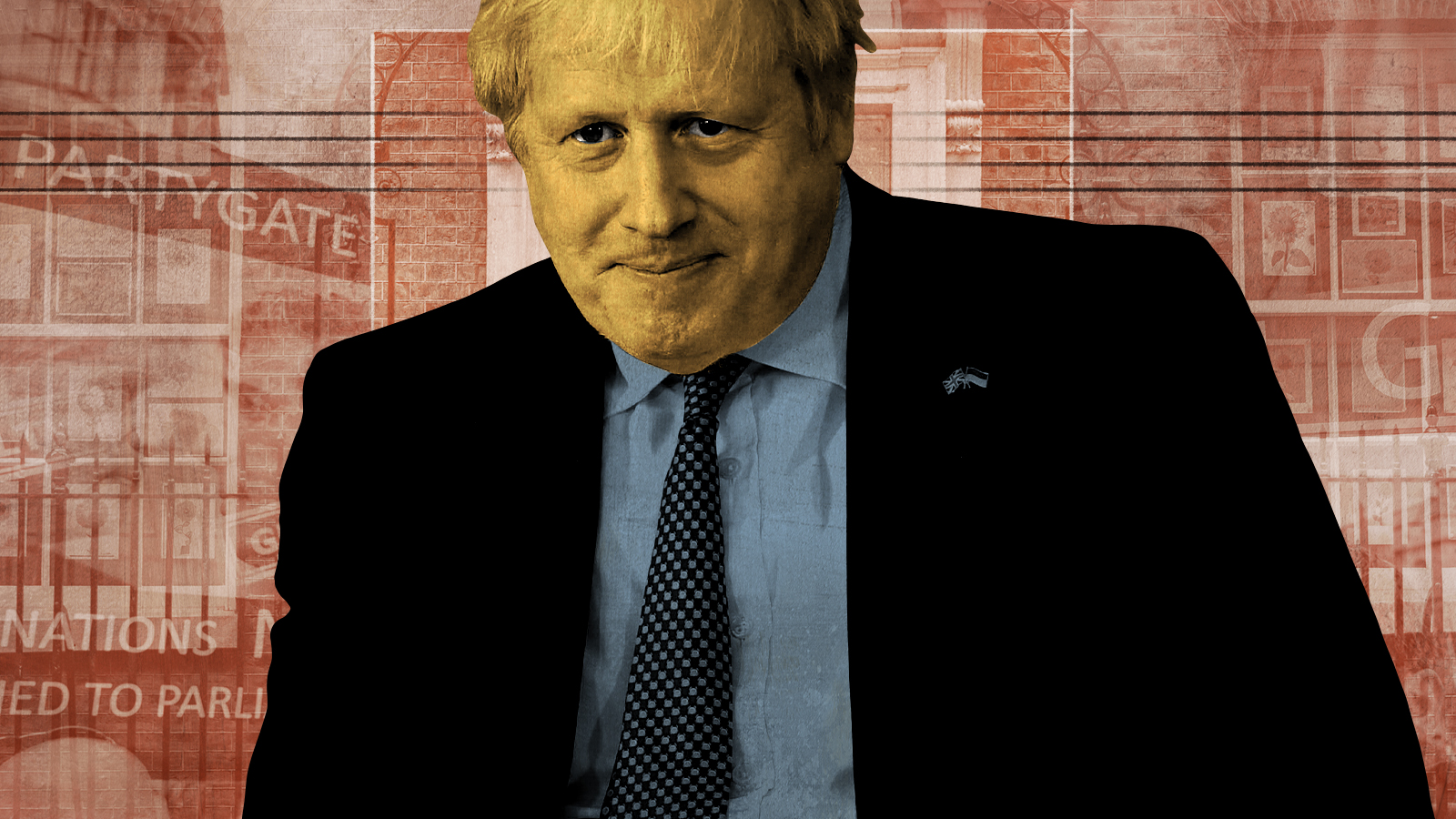Boris Johnson's shamefully lucky timing


A free daily email with the biggest news stories of the day – and the best features from TheWeek.com
You are now subscribed
Your newsletter sign-up was successful
Looks like Boris Johnson is going to get away with it after all.
Just a few months ago it seemed the British prime minister might lose his job, engulfed in a scandal over parties he and his staff attended during the pandemic while the rest of his country was under a strict lockdown Johnson himself had ordered. This admittedly wasn't corruption on the order of, say, inciting an insurrection. But it offended Britons who couldn't even attend funerals for their loved ones during the same time period: Nearly two thirds of the country in January said Johnson should resign.
On Tuesday, Johnson's office announced he had received a police fine for the violation which he has already paid. But Johnson has also made clear he has no plans to quit in shame, and members of his own party who once seemed ready to toss Johnson aside have backed off those threats. The controversy isn't over, but it looks like the prime minister will stay in office for now.
The Week
Escape your echo chamber. Get the facts behind the news, plus analysis from multiple perspectives.

Sign up for The Week's Free Newsletters
From our morning news briefing to a weekly Good News Newsletter, get the best of The Week delivered directly to your inbox.
From our morning news briefing to a weekly Good News Newsletter, get the best of The Week delivered directly to your inbox.
So what happened?
It's possible Johnson learned a lesson from his American counterparts in recent years: You can get through just about any scandal if you simply refuse to resign. Virginia Gov. Ralph Northam (D) served out his term after weathering a blackface scandal in 2019. Rep. Matt Gaetz (R-Fla.) is still in office despite an FBI investigation into whether he broke sex-trafficking laws. And former President Donald Trump was impeached twice yet never came close to walking away from office. Stubborn defiance can go a long way.
But it seems Russia's invasion of Ukraine played a major part here, too. MPs who were ready to turn on Johnson have rethought their position. "We are moving through a seismic historical event and the [prime minister] is showing the right kind of leadership at such a time," one such official told Politico. "I am afraid rule-breaking drinks parties have faded in their significance." It might not be a coincidence that Downing Street announced the fine shortly after cameras captured Johnson strolling the streets of Kyiv with Ukrainian President Volodymyr Zelensky.
Wars can juice a leader's ratings, divert a nation from paying attention to their foibles, and generally upend politics. George W. Bush had middling polling numbers until the 9/11 attacks made him politically invincible for a time. Bill Clinton was accused of a "wagging the dog" when he ordered attacks on Sudan during his own sex scandal. Winston Churchill was going through his own "wilderness years" out of power before the outbreak of World War II created the moment for him to step forward.
A free daily email with the biggest news stories of the day – and the best features from TheWeek.com
Is Boris Johnson another Churchill? He would probably like to think so. And maybe he is. Or maybe he's just very lucky that a distraction came along.
Joel Mathis is a writer with 30 years of newspaper and online journalism experience. His work also regularly appears in National Geographic and The Kansas City Star. His awards include best online commentary at the Online News Association and (twice) at the City and Regional Magazine Association.
